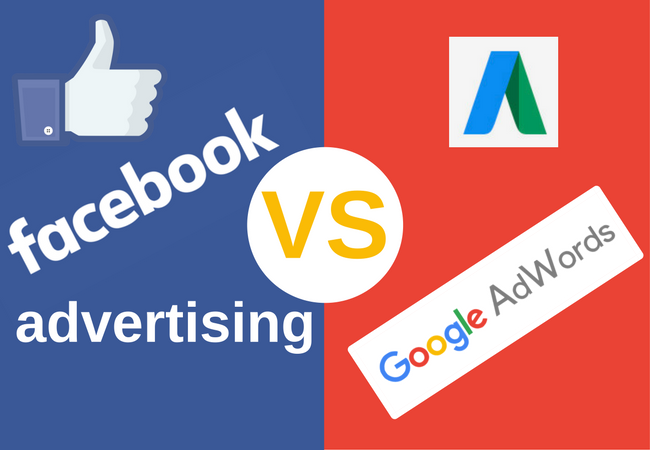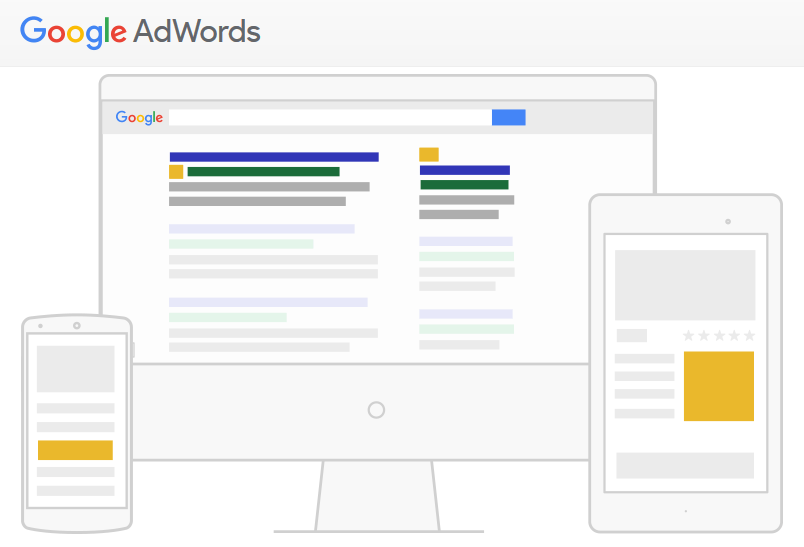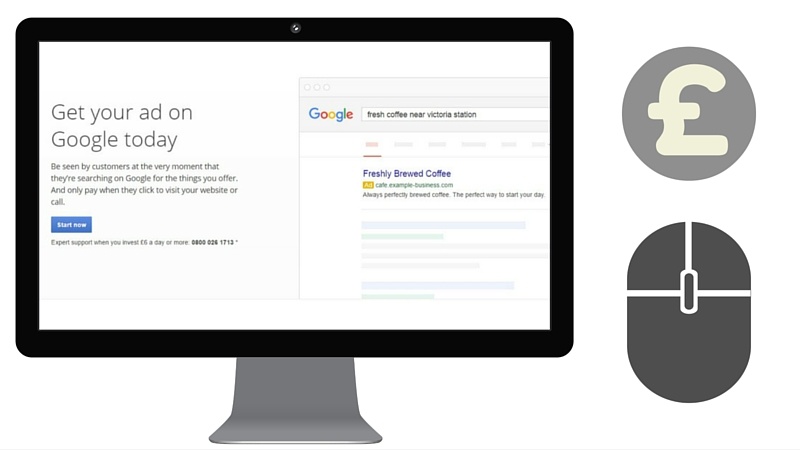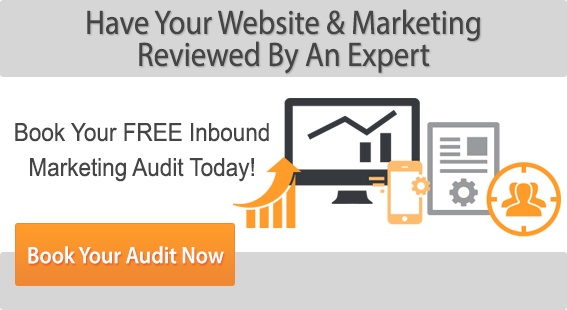Facebook Vs Google Advertising: How To Target Your Resources For The Best Results
by Leanne Mordue on 02-Mar-2017 11:30:00

For a B2B service business with an online advertising budget, choosing between using Facebook and Google can be a little bit challenging. They are both effective, but they approach promoting your company from differing angles.
In addition to some very different foundations, they also offer some unique abilities. Taking their individual strengths and weaknesses into account is vital when you plan your online marketing strategy.
A solid understanding of what they are great at will help you to get the most from your budget, and reach people who are the most likely to click and convert.
What Google Is Great At
The first thing that Google AdWords offers you is options and a huge market reach. The most basic form of advertising they offer is text based, and will match searches to keywords that you can bid on.
The big advantage that Google offers is the near-monopoly they enjoy in the world of search engines. Google performs about 40,000 searches every second, and serves almost every country on earth.
When you begin to use Google's AdWords marketing tool, your company will get immediate exposure. People can click right from their search page, making it a one click connection between you and your potential client.
You can also specify what time of the day your ads will be shown on Google, which can really help a campaign that seeks to sell a time-specific service.
For example: A restaurant that is having dinner specials would be able to take advantage of this aspect of Google's AdWords programme.
Google AdWords Pros:
- Massive prospect base
- Lots of control over daily budget and cost per click (cpc)
- Instant access to their platform
- Many targeting options: days of week and time of day, regional, browser dependent
- Advertising options: search network, display network and remarketing
- Synergies with other Google sites: YouTube and Google Shopping
What Google Isn't Perfect For
Nothing is perfect and Google is no exception. In the case of Google AdWords, its basic level of advertising is limited to text. For some business this isn't really a huge limitation. But if your company relies on unique looking works, this could represent a major limitation.
Another problem some businesses find with Google's AdWords is the cost. The system that Google uses is a little complex. If you are not aware of how it works, you can spend a lot of money generating clicks. It is always handy to have a partner such as JDR on your side to help manage your campaign and keep your spend to a minimum.
This is a pretty major downside if you decide to go it alone, and represents a large problem for implementing a marketing program with Google. The flip side is that you can cap your daily spending, and keep track of how the adverts are being used. It is extremely realistic to get a fantastic ROI from AdWords – thousands of companies do this – but it does involve careful management and adjustment over time.
Google Cons
- Steep learning curve
- Potentially expensive
- Limited format if using text-only ads
- Limited space in ad (three lines of text, now with 2 headlines in 2017)
- Ads can be irrelevant to target market unless you use negative keywords
Where Facebook Shines
Facebook gives you a very different angle for paid online advertising. When Facebook delivers your adverts, they are directed with laser-like precision at exactly who you identify as you’re demographic.
Another area that makes Facebook really attractive to some advertisers is the ability to deliver media rich adverts. With their system you can direct photo and video based promotions to exactly who you want.
People put a huge amount of personal information on Facebook, and this allows you to be specific with your marketing push.
It is also a relatively inexpensive way to reach people, and combined with its targeted delivery, Facebook does offer a compelling option for online adverts.
Facebook Pros:
- Ease of use, much easier than Google
- Tracking ability is concise
- Instant traffic
- Many useful targeting options: region, age, interests, income bracket, town etc...
- Gets your ad in front of people early on in buying processing
- Cost effective, with an affordable CPC
- Ability to use visual media
What Facebook Lacks
Facebook is an incredible place to advertise many things, but for the B2B sector it hasn’t yet reached full maturity. This is really the largest drawback to Facebook advertising.
People go onto Facebook to look at pictures from their niece's wedding. They do not generally go looking for 3PL logistics providers or accountancy services. Not that Facebook can't help you if you are in the B2B sector, but it may take a lot more work than another form of promotion.
Besides that, there are some minor issues with how the adverts are targeted, and in some cases the price you pay can be slightly higher than Google.
Facebook Cons:
- Can be expensive, but no worse than Google
- If using daily budget caps there is no option for time based targeting
- Hard for B2B to use effectively. It can be done, but you will get quicker and stronger results when working with a specialist B2B marketing agency.
How To Decide?
There is truly no right answer for which platform is objectively ‘better’. Given the huge difference in the capabilities, any decision would have to be situation specific. If you are in the B2B sector, then in our opinion you need to go after Google AdWords first. They will let you reach a market that is broad, relevant, and not social media driven.
For those businesses who can take advantage of highly specific demographic targeting and multimedia ability, Facebook is ideal.
Perhaps the most important thing is to learn how to manage both the systems before you dive in. If you don't understand how to optimise either one, you will end up paying a lot more than you need to. Wasted money in advertising is the same thing as missed opportunities, so spend wisely. Working with JDR on a bespoke marketing strategy can help harness the strengths of both Facebook and Google ads to drive more customers to your business. Get in touch to discuss your requirements with one of our specialists today.
- Inbound Marketing (SEO, PPC, Social Media, Video) (831)
- Strategy (368)
- Sales & CRM (197)
- Marketing Automation & Email Marketing (190)
- Business Growth (168)
- Website Design (162)
- Hubspot (141)
- Lead Generation (117)
- Google Adwords (100)
- Content Marketing (94)
- Conversion (53)
- Case Studies (49)
- News (47)
- Ecommerce (39)
- Webinars (34)
- SEO (26)
- AI (20)
- Events (19)
- LinkedIn Advertising (17)
- Video (17)
- Video Selling (15)
- Software training (13)
- Niche business marketing (11)
- The Digital Prosperity Podcast (10)
- HubSpot Case Studies (7)
- Facebook Advertising (6)
- Web Design Case Studies (1)
- February 2026 (2)
- January 2026 (12)
- December 2025 (15)
- November 2025 (6)
- October 2025 (17)
- September 2025 (16)
- August 2025 (14)
- July 2025 (14)
- June 2025 (5)
- May 2025 (19)
- April 2025 (15)
- March 2025 (13)
- February 2025 (13)
- January 2025 (8)
- December 2024 (2)
- November 2024 (4)
- October 2024 (21)
- September 2024 (4)
- August 2024 (8)
- July 2024 (14)
- June 2024 (16)
- May 2024 (25)
- April 2024 (15)
- March 2024 (18)
- February 2024 (5)
- January 2024 (10)
- December 2023 (6)
- November 2023 (10)
- October 2023 (13)
- September 2023 (12)
- August 2023 (14)
- July 2023 (13)
- June 2023 (14)
- May 2023 (15)
- April 2023 (13)
- March 2023 (14)
- February 2023 (13)
- January 2023 (15)
- December 2022 (13)
- November 2022 (6)
- October 2022 (8)
- September 2022 (22)
- August 2022 (15)
- July 2022 (13)
- June 2022 (16)
- May 2022 (14)
- April 2022 (16)
- March 2022 (17)
- February 2022 (11)
- January 2022 (8)
- December 2021 (6)
- November 2021 (7)
- October 2021 (11)
- September 2021 (10)
- August 2021 (7)
- July 2021 (7)
- June 2021 (4)
- May 2021 (4)
- April 2021 (1)
- March 2021 (3)
- February 2021 (5)
- January 2021 (4)
- December 2020 (7)
- November 2020 (6)
- October 2020 (5)
- September 2020 (9)
- August 2020 (18)
- July 2020 (17)
- June 2020 (17)
- May 2020 (10)
- April 2020 (21)
- March 2020 (24)
- February 2020 (21)
- January 2020 (12)
- December 2019 (23)
- November 2019 (12)
- October 2019 (14)
- September 2019 (16)
- August 2019 (15)
- July 2019 (13)
- June 2019 (6)
- May 2019 (8)
- April 2019 (4)
- March 2019 (2)
- February 2019 (2)
- January 2019 (2)
- December 2018 (3)
- November 2018 (24)
- September 2018 (11)
- August 2018 (9)
- June 2018 (3)
- May 2018 (6)
- April 2018 (14)
- March 2018 (12)
- February 2018 (16)
- January 2018 (15)
- December 2017 (15)
- November 2017 (18)
- October 2017 (23)
- September 2017 (19)
- August 2017 (28)
- July 2017 (27)
- June 2017 (25)
- May 2017 (18)
- April 2017 (17)
- March 2017 (16)
- February 2017 (17)
- January 2017 (14)
- December 2016 (21)
- November 2016 (27)
- October 2016 (25)
- September 2016 (16)
- August 2016 (20)
- July 2016 (19)
- June 2016 (14)
- May 2016 (20)
- April 2016 (24)
- March 2016 (22)
- February 2016 (28)
- January 2016 (27)
- December 2015 (28)
- November 2015 (19)
- October 2015 (9)
- September 2015 (12)
- August 2015 (5)
- July 2015 (1)
- June 2015 (10)
- May 2015 (3)
- April 2015 (11)
- March 2015 (14)
- February 2015 (15)
- January 2015 (12)
- December 2014 (2)
- November 2014 (23)
- October 2014 (2)
- September 2014 (2)
- August 2014 (2)
- July 2014 (2)
- June 2014 (7)
- May 2014 (14)
- April 2014 (14)
- March 2014 (7)
- February 2014 (2)
- January 2014 (7)
- December 2013 (9)
- November 2013 (14)
- October 2013 (17)
- September 2013 (3)
- August 2013 (6)
- July 2013 (8)
- June 2013 (4)
- May 2013 (3)
- April 2013 (6)
- March 2013 (6)
- February 2013 (7)
- January 2013 (5)
- December 2012 (3)
- November 2012 (2)
- September 2012 (1)
Subscribe by email
You May Also Like
These Related Blogs

7 Ways Google Sponsored Ads (PPC) Will Benefit B2B Companies
We’ve all seen Google sponsored ads – the ads that appear at the top and on the right of your search results. Pay-per-click advertising, or Google AdW …

How to use Christmas to increase B2B sales
The run-up to Christmas is a crazy time for a lot of B2C businesses, but is often a quiet period for B2B companies. For many B2B businesses, the coupl …

Ever Ask Yourself, 'What is Pay-Per-Click Advertising?' Find Out If It Can Save Your B2B Business Today
Pay-per-click advertising, often shortened to PPC, is a popular term you'll hear used in business, particularly amongst B2B business directors and mar …



